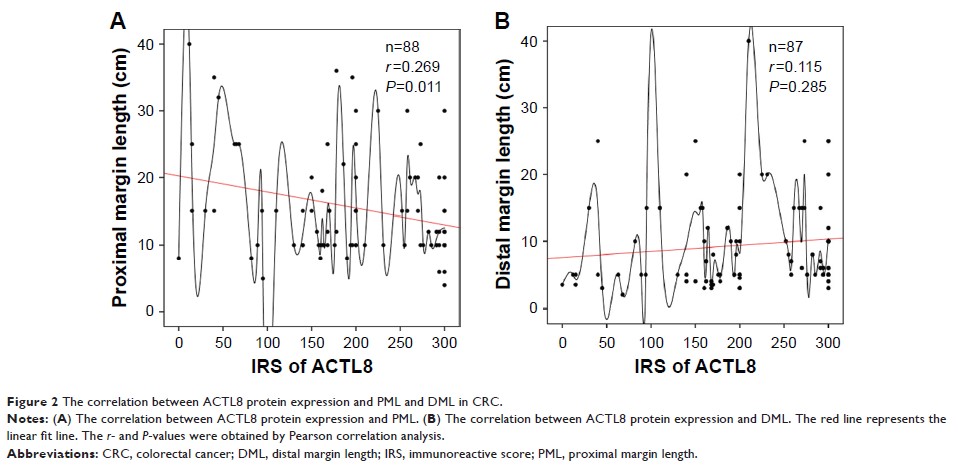108899
论文已发表
注册即可获取德孚的最新动态
IF 收录期刊
- 3.4 Breast Cancer (Dove Med Press)
- 3.2 Clin Epidemiol
- 2.6 Cancer Manag Res
- 2.9 Infect Drug Resist
- 3.7 Clin Interv Aging
- 5.1 Drug Des Dev Ther
- 3.1 Int J Chronic Obstr
- 6.6 Int J Nanomed
- 2.6 Int J Women's Health
- 2.9 Neuropsych Dis Treat
- 2.8 OncoTargets Ther
- 2.0 Patient Prefer Adher
- 2.2 Ther Clin Risk Manag
- 2.5 J Pain Res
- 3.0 Diabet Metab Synd Ob
- 3.2 Psychol Res Behav Ma
- 3.4 Nat Sci Sleep
- 1.8 Pharmgenomics Pers Med
- 2.0 Risk Manag Healthc Policy
- 4.1 J Inflamm Res
- 2.0 Int J Gen Med
- 3.4 J Hepatocell Carcinoma
- 3.0 J Asthma Allergy
- 2.2 Clin Cosmet Investig Dermatol
- 2.4 J Multidiscip Healthc

ACTL8 的上调表达有助于侵袭和转移,并且表明结肠直肠癌的预后不良
Authors Han Q, Sun ML, Liu WS, Zhao HS, Jiang LY, Yu ZJ, Wei MJ
Received 30 August 2018
Accepted for publication 24 January 2019
Published 1 March 2019 Volume 2019:12 Pages 1749—1763
DOI https://doi.org/10.2147/OTT.S185858
Checked for plagiarism Yes
Review by Single-blind
Peer reviewers approved by Dr Colin Mak
Peer reviewer comments 4
Editor who approved publication: Dr William Cho
Background: ACTL8 is
a member of the CT antigens. There are only few studies on the role of ACTL8 in
malignant tumors. The aim of this study is to investigate the expression and
clinical significance of ACTL8 protein in colorectal cancer (CRC).
Materials and methods: Human CRC
tissues and cell lines, and paired adjacent non-tumor tissues and human
intestinal epithelial cell lines were obtained to evaluate the expression of
ACTL8. The association between protein expression of ACTL8 and
clinicopathological parameters and prognosis of CRC patients was examined. The
biological functions of ACTL8 in the invasion and metastasis of CRC were
determined by wound healing and transwell invasion assays after silencing of
ACTL8 in CRC cell lines. The potential target genes of ACTL8 were also
identified by quantitative reverse transcription PCR and Western blotting after
silencing of ACTL8 in CRC cell lines.
Results: It was
found that ACTL8 was upregulated in human CRC tissues and cell lines. The
expression of ACTL8 was positively associated with poor differentiation,
invasion and metastasis, postoperative infection, and poor prognosis, but
negatively associated with proximal margin length. In addition, silencing of
ACTL8 significantly decreased the capacity of invasion and migration in HT29
and SW620 CRC cell lines. Moreover, silencing of ACTL8 significantly decreased
the expression of TRIM29 in HT29 and SW620 CRC cell lines.
Conclusion: These
results suggest that ACTL8 plays a key role in the invasion and metastasis of
CRC, and TRIM29 may be involved in the ACTL8-mediated poor prognosis of CRC.
Keywords: ACTL8,
CRC, prognosis, invasion and metastasis, TRIM29
